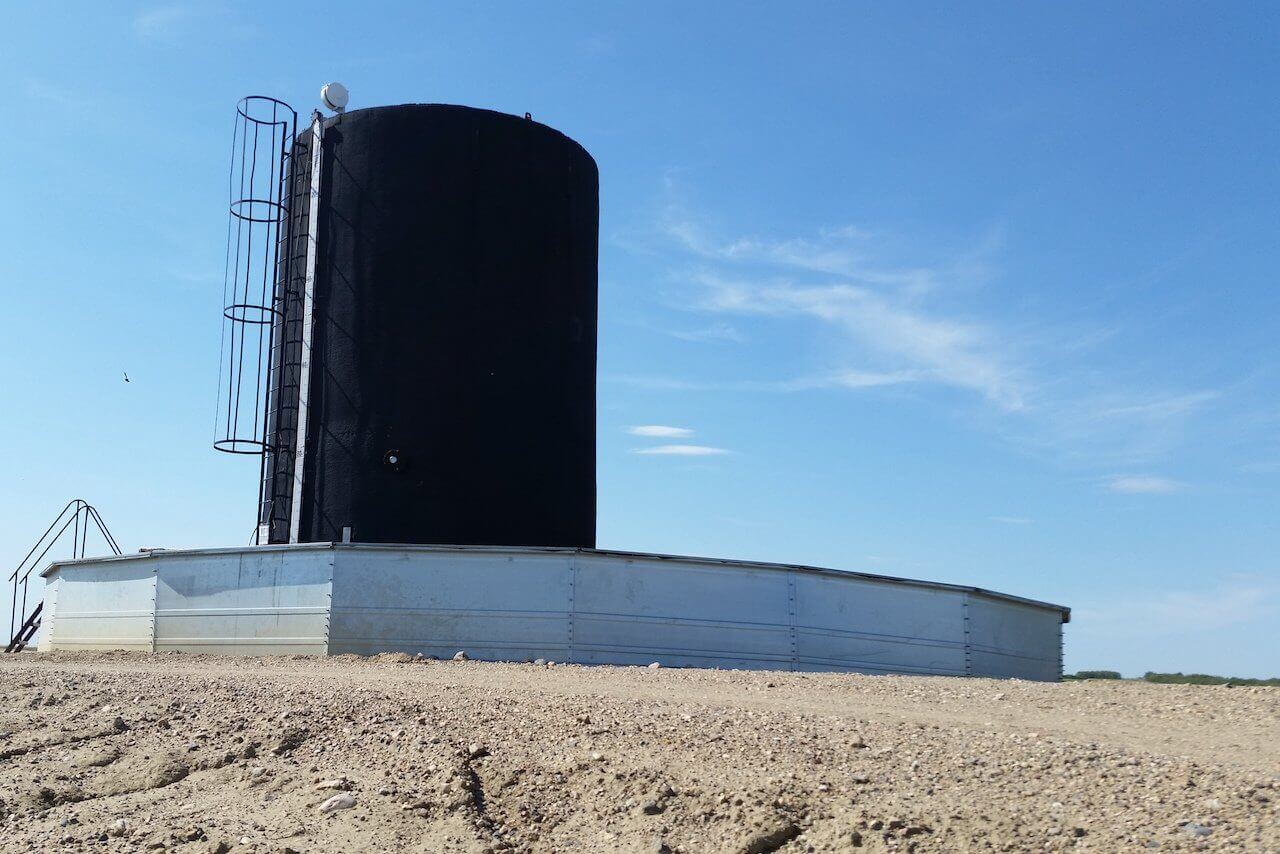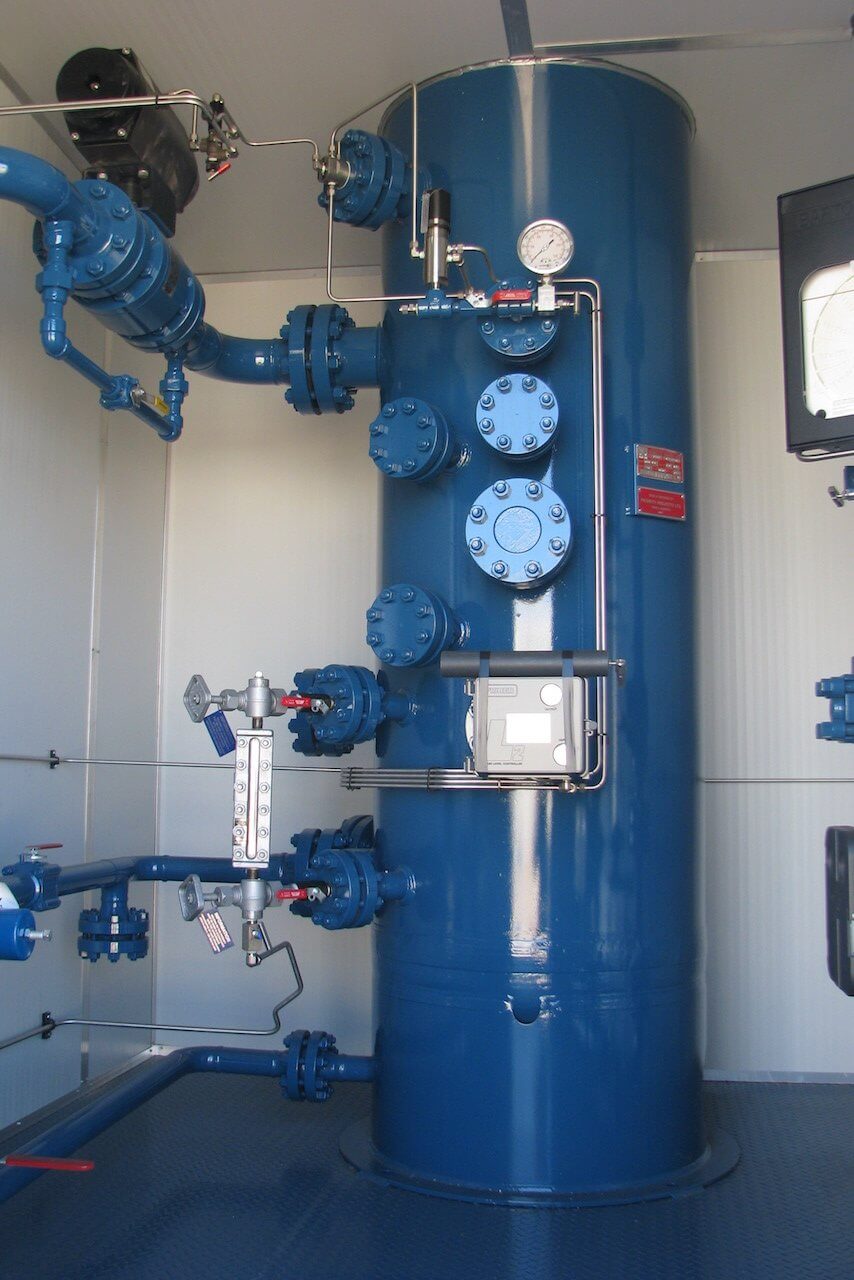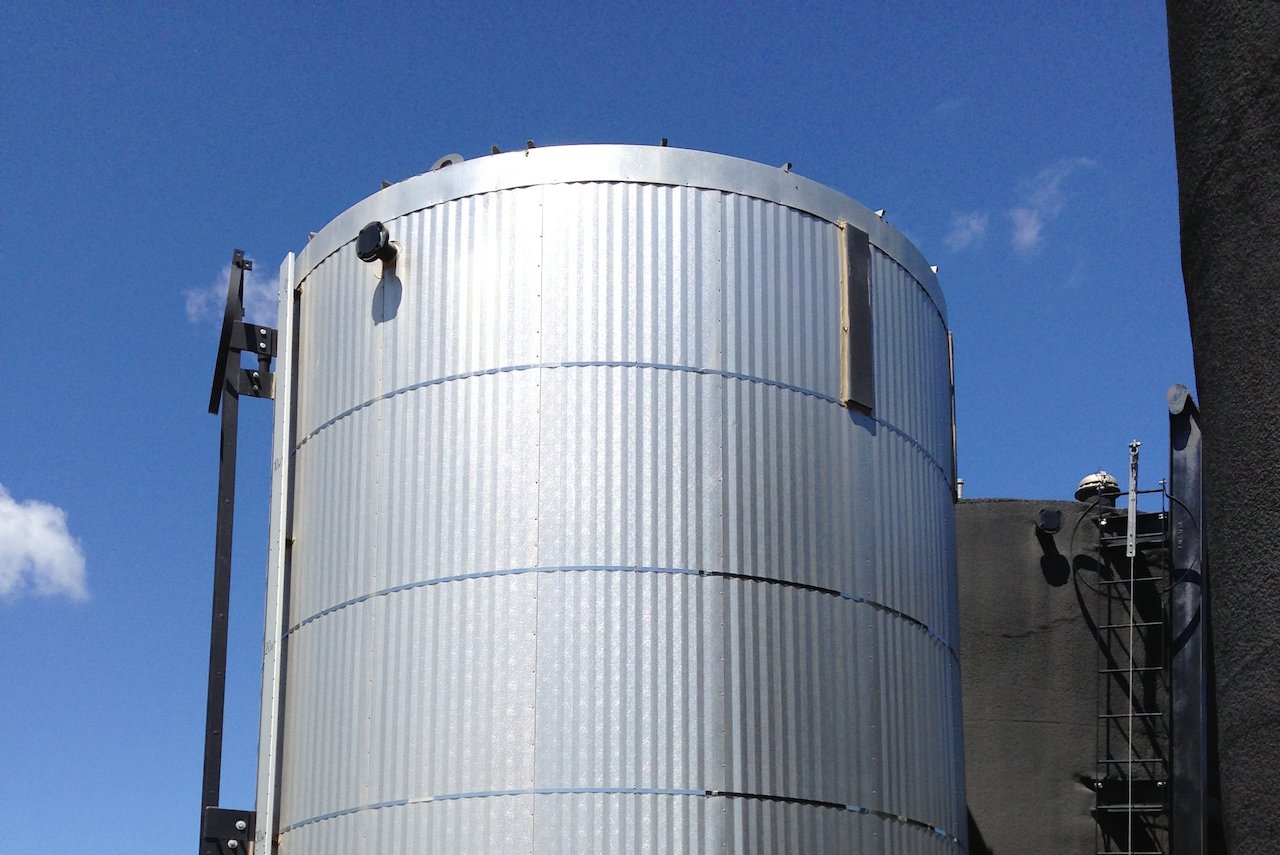
In the competitive landscape of oil and gas equipment suppliers, standing out is crucial. While many offer standard solutions, finding a partner that goes beyond the ordinary can be a game-changer. Imagine a supplier not just meeting your needs but anticipating them, not just delivering on time but exceeding expectations. This contrast in service quality can make all the difference in your operations, ensuring efficiency and reliability at every turn.
Key Takeaways
-
Choose Reliable Suppliers: When selecting an oil and gas equipment supplier, prioritize reliability and quality to ensure seamless operations in the field.
-
Focus on Precision: Precision in oilfield fabrication is crucial for efficiency and safety; opt for suppliers who prioritize accuracy in their manufacturing processes.
-
Prioritize Key Equipment: Understanding the key oilfield equipment needed for your operations is essential for optimal performance and productivity.
-
Embrace Advanced Regulation Systems: Incorporating advanced regulation systems can enhance operational control and safety measures within your oil and gas operations.
-
Invest in Dehydration and Storage Solutions: Dehydration and storage solutions play a vital role in maintaining the quality of extracted resources; invest in reliable equipment for this purpose.
-
Leverage Production Capabilities: Make informed decisions by assessing suppliers' production capabilities to ensure they align with your project requirements and timelines.
Importance of Oil and Gas Equipment Suppliers
Supporting Oil Production

Specialized equipment plays a crucial role in boosting oil production efficiency by enabling faster extraction processes. Tailored solutions are essential to address the specific challenges faced in oilfields, such as harsh environments and complex drilling requirements. Reliable suppliers are key in maintaining consistent production levels by providing high-quality equipment that meets industry standards.
Ensuring Efficiency
To optimize equipment performance for maximum output, regular maintenance is indispensable. Routine checks and servicing help prevent breakdowns, ensuring continuous operation and minimizing downtime. Custom-built equipment tailored to the unique needs of oil and gas operations can significantly enhance workflow efficiency, improving overall productivity.
Enhancing Safety
Safety measures are integrated into equipment design and manufacturing to mitigate risks associated with oil and gas operations. Compliance with industry safety standards is paramount to safeguarding workers and preventing accidents. Training programs and support services offered by suppliers play a crucial role in promoting safe equipment usage, ensuring that operators adhere to best practices for a secure working environment.
Precision in Oilfield Fabrication
Fabrication Techniques
Oilfield equipment is crafted using advanced fabrication techniques to ensure durability and efficiency. Welding, machining, and assembly processes are meticulously executed to meet industry standards. The precision in fabrication guarantees the reliability of the equipment in harsh operational environments. Certified fabrication shops play a crucial role in maintaining quality assurance throughout the manufacturing process.
-
Advanced welding techniques
-
Meticulous machining processes
-
Certified fabrication shops
The significance of precision engineering cannot be overstated in oilfield equipment. It directly impacts the performance and longevity of the machinery. By adhering to strict tolerances and specifications, manufacturers ensure that each component fits seamlessly within the system. This meticulous approach minimizes downtime and enhances operational efficiency for oil and gas companies.
Performance Standards
Oil and gas equipment must adhere to stringent performance benchmarks to meet industry requirements. Rigorous testing procedures are employed to assess the functionality, durability, and safety of the equipment. Through these tests, manufacturers verify that their products not only meet but exceed the established standards, ensuring optimal performance in the field.
-
Rigorous testing procedures
-
Exceeding industry standards
Continuous improvement is a core aspect of enhancing product performance in the oil and gas sector. Manufacturers constantly analyze feedback from the field to identify areas for enhancement. By incorporating innovative technologies and materials, they strive to develop cutting-edge solutions that push the boundaries of equipment efficiency and reliability.
Custom Solutions

Customization is key in delivering tailored solutions to meet unique client requirements in the oil and gas industry. Manufacturers collaborate closely with clients to understand their specific needs and challenges. Through this partnership, specialized equipment is developed, addressing niche demands effectively.
-
Collaborative product development
-
Flexibility in design
-
Meeting project-specific requirements
Key Oilfield Equipment
Separators

Vertical and horizontal separators play a crucial role in oil processing, efficiently separating oil, gas, and water. These separators are essential for removing impurities and ensuring the quality of extracted oil. In various oilfield scenarios, separators are used to enhance production rates and maintain operational efficiency. High-quality separators offer improved performance, reducing downtime and maintenance costs.
-
Efficiently separate oil, gas, and water
-
Enhance production rates in different oilfield scenarios
-
Reduce downtime and maintenance costs with high-quality separators
Line Heaters
Line heaters are vital for maintaining optimal fluid temperatures in oilfield operations. Available in different sizes and capacities, these heaters prevent the formation of hydrates and ensure smooth flow within pipelines. Custom-built line heaters cater to specific operational requirements, offering flexibility and precision in temperature control.
-
Prevent hydrate formation and ensure smooth flow
-
Custom-built options for specific operational needs
-
Provide flexibility and precision in temperature control
Manifold Header Systems
Manifold header systems serve as critical components in oil and gas operations, regulating the flow of fluids within pipelines. Effective manifold design considers factors like pressure, temperature, and flow rates to optimize system performance. Using robust materials in manifold construction ensures durability, reliability, and long-term operation stability.
-
Regulate fluid flow within pipelines
-
Optimize system performance with effective design considerations
-
Ensure durability and reliability with robust material choices
Odorant Stations
Odorant stations are essential for gas safety, adding distinctive odors to natural gas for leak detection purposes. Advanced technology is employed in odorization processes to ensure accurate odor levels without affecting gas quality. Compliance with regulatory standards is crucial for odorant systems to uphold safety measures and prevent potential hazards.
-
Add distinctive odors for leak detection purposes
-
Employ advanced technology for accurate odor levels
-
Uphold safety measures through compliance with regulatory standards
Advanced Regulation Systems
Metering Stations
Metering stations play a crucial role in accurately measuring the flow of oil and gas. These stations ensure that the right amount of product is transported through pipelines. Modern metering systems utilize ultrasonic technology for precise measurements, improving efficiency and reducing errors. Calibration and maintenance are essential to ensure that metering stations provide reliable data for operational decisions.
Odorizing Stations
Odorizing natural gas is vital for safety, as it helps detect gas leaks by adding distinct smells. Odorizing stations are designed with features like odorant injection systems to evenly distribute the odorant throughout the gas stream. Regulatory standards dictate the concentration of odorants added to natural gas, ensuring compliance with safety regulations and protecting communities from potential hazards.
Fuel Gas Scrubbers
Fuel gas scrubbers are responsible for removing impurities such as sulfur compounds and moisture from natural gas. By eliminating contaminants, scrubbers prevent equipment corrosion and maintain the quality of the gas being transported. Regular maintenance of fuel gas scrubbers is crucial to ensure optimal performance and extend their operational lifespan.
Dehydration and Storage Solutions
Dehydrators
Dehydrators play a crucial role in removing moisture from gas streams, ensuring optimal performance and preventing corrosion. They come in various types such as glycol dehydrators and desiccant dehydrators, each tailored to specific applications. The removal of moisture through dehydration significantly enhances gas quality by reducing the risk of pipeline blockages and equipment damage.
-
Glycol dehydrators: efficient for high-volume gas streams
-
Desiccant dehydrators: ideal for low-volume gas streams
Storage Tanks

Storage tanks are essential in oil and gas operations for storing crude oil before transportation or refining. They come in diverse designs like fixed roof tanks and floating roof tanks, with varying capacities to accommodate different volumes. Modern storage tank designs prioritize safety features like vapor recovery units and emergency vents to prevent accidents.
-
Fixed roof tanks: suitable for storing large quantities of oil
-
Floating roof tanks: minimize evaporation losses
Oil Treaters
Oil treaters play a vital role in enhancing oil quality by removing impurities and contaminants. Various treatment processes such as dehydration, desalting, and dewatering are employed to ensure the oil meets industry standards. The integration of advanced technology like electrostatic coalescers and chemical injection systems enhances the efficiency of oil treating systems.
-
Dehydration process: removes water content from crude oil
-
Desalting process: removes salt content from crude oil
Water Knockouts
Free water knockouts are crucial components in oil production facilities that aid in separating water from oil. Effective water separation is achieved through proper design considerations like gravity settling chambers and coalescing plates. Regular maintenance of water knockout systems is essential to ensure optimal performance, prevent contamination, and maintain production efficiency.
-
Gravity settling chambers: allow water to separate from oil by gravity
-
Coalescing plates: enhance the separation efficiency of water knockouts
Features of Our Equipment
Durability
Durability is crucial in oil and gas equipment to withstand harsh operating conditions and ensure long-term reliability. High-quality materials like stainless steel and advanced alloys enhance equipment longevity. Construction techniques such as precision welding and corrosion-resistant coatings further boost durability. Investing in durable equipment reduces downtime and maintenance costs, providing long-term cost-effectiveness.
Efficiency
Efficiency in oil and gas equipment is vital for optimizing operations and maximizing productivity. Factors like proper maintenance schedules and regular inspections contribute to equipment efficiency in oilfields. Technology integration, such as IoT sensors and automation, plays a significant role in enhancing operational efficiency by enabling real-time monitoring and data analysis. Energy-efficient solutions, including variable frequency drives and high-efficiency motors, help reduce energy consumption and operational costs.
Safety Standards
Adhering to key safety standards is paramount in the oil and gas industry to prevent accidents and protect personnel. Safety regulations such as API (American Petroleum Institute) standards and OSHA (Occupational Safety and Health Administration) guidelines outline specific requirements for equipment design, installation, and operation to ensure worker safety. Training programs on proper equipment handling, emergency procedures, and hazard awareness are essential for promoting a culture of safety within organizations.
Our Production Capabilities
Equipment Range
Our oil and gas equipment supplier offers a diverse range of products, including drilling rigs, pumps, valves, and pipelines. This comprehensive inventory caters to various client needs, from exploration to production. Sourcing all equipment from a single supplier streamlines procurement processes and ensures compatibility across the project.
-
Pros:
-
Simplifies procurement processes
-
Ensures compatibility across the project
-
Production Shop Overview
The fabrication shop boasts advanced machinery and skilled labor for producing customized equipment. From design to delivery, our production process emphasizes efficiency and precision. Having skilled labor and advanced machinery is crucial for meeting strict quality standards and client specifications.
-
Cons:
-
Requires significant investment in machinery and training
-
Challenges in maintaining a skilled workforce
-
Quality Assurance
Our equipment manufacturing undergoes stringent quality assurance processes to ensure reliability and safety. Certifications such as ISO standards validate our commitment to quality. Continuous monitoring and testing are integral to our quality control measures, ensuring that every piece of equipment meets industry standards.
-
Quality assurance processes include:
-
Regular inspections
-
Compliance with industry standards
-
Frequently Asked Questions
Common Inquiries
Clients often inquire about equipment specifications such as size and custom options available for their projects. Clear communication is crucial to address these concerns effectively. Providing detailed information on the state of the art equipment in the shop can help clients make informed decisions. Resources like online catalogs and product brochures are available for clients seeking additional information.
Technical Support
After a purchase, clients can rely on our technical support services for assistance. Having knowledgeable staff available ensures that clients receive prompt and accurate guidance. Ongoing support plays a vital role in maximizing equipment performance, ensuring smooth operations for various projects.
-
Pros:
-
Immediate assistance post-purchase
-
Expert guidance for technical issues
-
-
Cons:
-
Limited availability for on-site support
-
Potential delays during peak service periods
-
Equipment Maintenance
Regular maintenance is essential for extending the life of oil and gas equipment. Clients can access various maintenance services tailored to their specific needs. Preventive maintenance is key to avoiding unexpected breakdowns and costly repairs, enhancing overall operational efficiency.
-
Types of Maintenance Services:
-
Routine inspections
-
Parts replacement
-
Lubrication services
-
Contact Us for More Info
Reach Out Anytime
Contact us through our website, email, or phone for any inquiries about our new oil and gas equipment. We are here to assist you promptly.
We welcome the opportunity to provide personalized consultations to address your specific needs. Our team of experts is ready to guide you in selecting the best equipment for your operations.
Multiple Contact Channels
You can easily get in touch with us through various channels. Send us an email at [email protected] for detailed information on our new products.
Feel free to give us a call at +1-800-123-4567 for immediate assistance. Our dedicated customer service team is available to answer all your queries.
Commitment to Customer Support
Our commitment to customer service sets us apart. We prioritize customer satisfaction by offering top-notch support before, during, and after your purchase.
We strive to build long-lasting relationships with our clients by providing exceptional service and reliable products. Contact us today to experience our unparalleled dedication firsthand.
Final Remarks
In a competitive industry like oil and gas, having reliable equipment suppliers is crucial. The precision in fabrication, advanced regulation systems, and efficient dehydration and storage solutions are all vital components that ensure smooth operations. Our top-notch equipment features and extensive production capabilities set us apart, guaranteeing high-quality products tailored to your needs. If you have any questions or need more information, don't hesitate to reach out to us.
Contact us now for all your oil and gas equipment needs!
Frequently Asked Questions
How do I choose the right oil and gas equipment supplier?
Choosing the right supplier involves assessing their experience, reputation, product quality, and customer service. Look for a supplier with a proven track record in the industry, positive reviews, high-quality equipment, and excellent support services.
What are the benefits of using advanced regulation systems?
Advanced regulation systems offer precise control over oil and gas operations, leading to increased efficiency, reduced downtime, enhanced safety measures, and compliance with industry standards. These systems optimize performance and contribute to cost savings in the long run.
Can you customize equipment according to specific project requirements?
Yes, we offer customization services to tailor equipment based on your project needs. Our team works closely with clients to understand their unique specifications and deliver customized solutions that meet or exceed expectations for optimal performance and efficiency.
How can I ensure the durability of oilfield equipment?
Regular maintenance, proper handling, adherence to safety guidelines, and timely inspections are crucial for ensuring the durability of oilfield equipment. Following manufacturer recommendations, conducting routine checks, and addressing any issues promptly can extend the lifespan of the equipment.
Do you provide training on how to use your oil and gas equipment?
Yes, we offer comprehensive training programs to familiarize clients with the operation, maintenance, and safety protocols related to our equipment. Our training sessions aim to enhance user proficiency, promote safe practices, and maximize the efficiency of using our products.
BENOIT RENTALS’ TOP RESOURCES ON OILFIELD FLARE STACK SYSTEMS:
Alberta Energy Regulator (AER) - Flaring and Venting
Petroleum Technology Alliance Canada (PTAC)
Canadian Association of Petroleum Producers (CAPP)
NOT FINDING WHAT YOU ARE LOOKING FOR? BENOIT RENTALS ALSO OFFERS:
